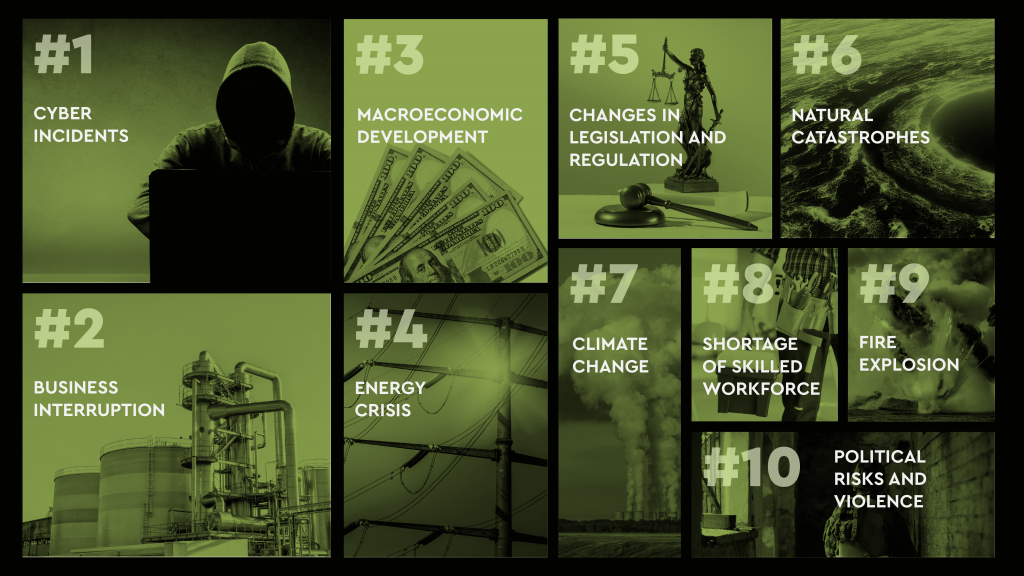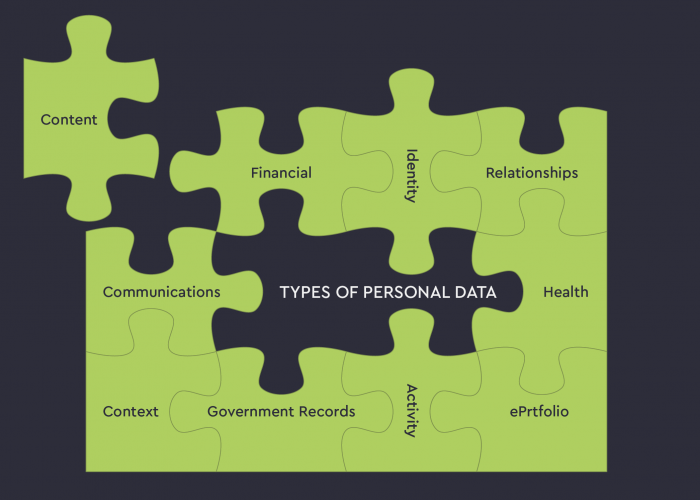The risk of cyberattacks, business disruption, and inflationary pressures will continue to threaten businesses of all sizes this year, according to Allianz’s 2023 Risk Barometer report.
The Allianz Risk Barometer is an annual business risk ranking compiled by Allianz Group’s corporate insurer Allianz Global Corporate & Specialty (AGCS), together with other Allianz entities, which incorporates the views of 2,712 risk management experts in 94 countries and territories including CEOs, risk managers, brokers, and insurance experts. It is being published for the 12th time.
MOST IMPORTANT BUSINESS RISKS FOR 2023
The most important global business risks for 2023 according to the Allianz Risk Barometer are:
- Cyber incidents — the biggest company concerns for the second year in succession
- Business interruption
- Macroeconomic developments such as inflation and monetary policies
- The energy crisis
- Changes in legislation and regulation
- Natural catastrophes
- Climate change
- The shortage of skilled workers
- Fire and explosion
- Political risks and violence
AGCS’ CEO Joachim Mueller comments on the findings: “For the second year in a row the Allianz Risk Barometer shows that companies are most concerned about mounting cyber risks and business interruption.
At the same time, they see inflation, an impending recession, and the energy crisis as immediate threats to their business. Companies – in Europe and the US in particular – worry about the current ‘permacrisis’ resulting from the consequences of the pandemic and the economic and political impact of the ongoing war in Ukraine. It’s a stress test for every company’s resilience.
“The positive news is that as an insurer we see continuous improvement in this area among many of our clients, particularly around making supply chains more failure-proof, improving business continuity planning, and strengthening cyber controls. Taking action to build resilience and de-risk is now front and center for companies, given the events of recent years.”
In 2023, the top four risks in the Allianz Risk Barometer are broadly consistent across all company sizes globally – large, medium, and small – as well as across core European economies and the US (energy crisis excepted). Risk concerns for businesses in Asia Pacific and African countries show some deviation, reflecting the different impacts of the ongoing war in Ukraine and its economic and political repercussions.
DIGITAL AND DISRUPTION DANGERS
Cyber Incidents, such as IT outages, ransomware attacks, or data breaches, ranks as the most important risk globally for the second year in succession – the first time this has occurred. It also ranks as the top peril in 19 countries, including Canada, France, Japan, India, and the UK. It is the risk that small companies (<$250mn annual revenue) are most worried about.
“For many companies, the threat in cyberspace is still higher than ever and cyber insurance claims remain high. Large companies are now used to being targeted and able to repel most attacks. Increasingly, we see more small- and mid-size businesses impacted who often tend to underestimate their exposure. They all need to continuously invest in strengthening their cyber controls,” says Shanil Williams, AGCS Board Member, and Chief Underwriting Officer Corporate, responsible for cyber underwriting.
According to the Allianz Cyber Center of Competence, the frequency of ransomware attacks remains elevated in 2023, while the average data breach cost is at an all-time high at $4.35mn and expected to surpass $5mn in 2023.
The war in Ukraine and wider geopolitical tensions are heightening the risk of a large-scale cyber-attack by state-sponsored actors. In addition, there is also a growing shortage of cybersecurity professionals, which brings challenges when it comes to improving security.
For businesses in many countries, 2023 is likely to be another year of heightened risks for Business Interruption (BI) because many business models are vulnerable to sudden shocks and change, which in turn impact profits and revenues. Ranking #2 globally, BI is the number one risk in countries such as Brazil, Germany, Mexico, Netherlands, Singapore, South Korea, Sweden, and the US.
The scope of disruptive sources is wide. Cyber incidents are the cause of BI companies fear most (45% of responses); the second most important cause is the energy crisis (35%), followed by natural catastrophes (31%). The skyrocketing cost of energy has forced some energy-intensive industries to use energy more efficiently, move production to alternative locations or even consider temporary shutdowns. The resulting shortages threaten to cause supply disruption across several critical industries in Europe, including food, agriculture, chemicals, pharmaceuticals, construction, and manufacturing, although warm winter conditions in Europe and the stabilization of the price of gas is helping to ease the energy situation.
A possible global recession is another likely source of disruption in 2023, with the potential for supplier failure and insolvency, which is a particular concern for companies with single or limited critical suppliers. According to Allianz Trade, global business insolvencies are likely to rise significantly in 2023: +19%.
TOP ASIA PACIFIC RISKS
Business Interruption (#1 with 35% of responses) is the top risk in Asia Pacific, surpassing Cyber Incidents (#2 with 32%) which ranked top for the previous three years. Natural Catastrophes (#3 with 27%), Changes in legislation and regulation (#4 with 24%), and Climate Change (#5 with 22%) make up the other top risks in the region.
Ranking second in Asia Pacific, Cyber Incidents remain a significant concern in the region, especially in Japan and India where it ranks top.
Cyber Incidents claimed the top spot in India for the past six years, and the country has been dealing with cyber security concerns for a while. For example, in November 2022, multiple servers of the All India Institute of Medical Sciences (AIIMS), a federal government hospital that caters to ministers, politicians, and the general public, were infected.
Businesses in Japan were also most concerned about Cyber Incidents, which claimed the top spot for the past three years. Notably, in 2022, a large Japanese car manufacturer closed all of its factories nationwide for a day following a cyberattack at a supplier. The suspension affected the output of around 13,000 vehicles.
Mark Mitchell, Regional Managing Director, Asia Pacific at AGCS, said, “Despite the easing of supply chains from Covid-19 related recovery, businesses in Asia Pacific continue to face significant business interruption as they need to navigate a plethora of challenges. This includes global shortages and inflationary pressures as a result of the war in Ukraine and geopolitical tensions, and other perennial risks in the rankings such as cyber and natural catastrophes.
“These risks, coupled with the threat of recession this year, will once again force companies to evolve and adapt their business models, as they did at the start of the pandemic. Businesses also need to continue to enhance resilience by working with stakeholders and partners to develop alternative suppliers and improve business continuity management.”




